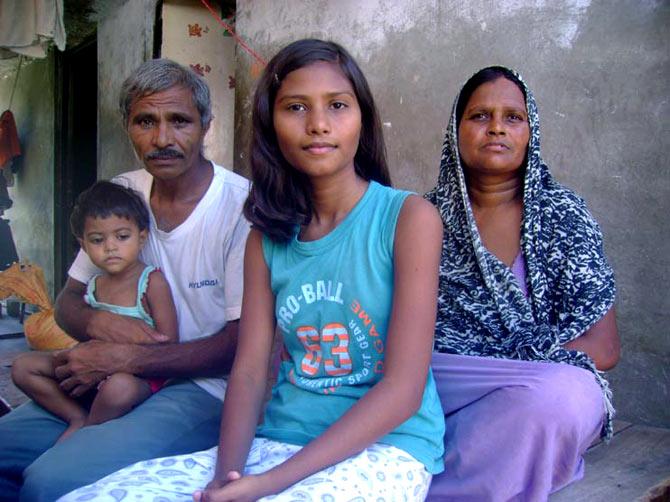Neuroscience and Decision-making power

Neuroscience reveals what appears to be instinctive is actually the result of deliberate practice and extensive experience.
Practice and experience allow the brain to match a pattern and respond appropriately without conscious thought. What we think as intuition isn't intuition at all.
Remember the time when you had to make a difficult decision and it ended up being the right one? Well, what was the process your brain went through to make that decision? In this article, we’ll find out about what is the decision-making process is and how it works.
The decision-making process
There is a 7-step process involved in the decision-making process.
Step 1: Identify the decision. This is the step when you realize that a decision needs to be made. For example, “Should I order some take-out Chinese food tonight?”
Step 2: Collect relevant information. This second step involves gathering information that is essential and important to the decision before the decision is made. This information includes: what information is needed, the sources to get the information from, and then how to get the information. This second step uses both internal and external efforts. The internal effort involves finding information through a process of self-assessment. The external effort comes from finding the information from outside sources like books, other people, and the internet. For example, finding a Chinese food restaurant that meets your needs.
Step 3: Identify the alternatives. This third step involves the likelihood that you have found other possible choices to make the decision. This step means using creativity and finding desirable alternatives. For example, realizing you could also go to the restaurant to pick-up the food, or even order something different, such as Italian food.
Step 4: Weigh the evidence. Using the information gathered and the emotions that you have, this step involves imagining each alternative to the choice until the effects of the decision to wear off and are no longer effective. It’s essential to think about whether or not they need in Step 1 will be met or figured out by each alternative. During the process of Step 4 and weighing the evidence and options, your brain will begin to favor those that have a higher potential for reaching your end goal. At the end of Step 4, the alternate choices will be ordered based on your own value system. For example, if by getting Chinese food as delivery, I won’t need to leave home. However, it would be healthier to walk to the restaurant a few blocks away and get the food.
Step 5: Choose among the alternatives. Once all of the evidence is weighed, Step 5 kicks in and finalizes the choices. This means that your choice is made. For example, deciding to walk to the restaurant to pick up the take-out order.
Step 6: Taking action. By taking action in Step 6, you’re simply implementing and putting into action the choice in Step 5. For example, walking to the restaurant to pick up the food.
Step 7: Reviewing the decision and its consequences. This means the decision is made and it’s time to evaluate whether or not they need in Step 1 was met or not. For example, the fact that you know have Chinese food take-out for dinner tonight means that the decision was successful.
Decision Making Process
As Jeff Haden states, Chess grandmasters sometimes perform exhibitions where they simultaneously play -- and win -- multiple games of speed chess while blindfolded. Clearly, they can memorize each board.
Or not.
In a famous study, Adriaan de Groot asked expert and novice chess players to view a position for a few seconds and then reconstruct it from memory. When the position was one that could occur in real games, the experts performed significantly better than novices.
But when the position was created by placing pieces at random, the experts performed no better than novices.
Why? The experts had seen and analyzed countless chess positions. They knew and recognized patterns and instinctively connected a new pattern to ones they already knew.
But they couldn't relate a random pattern to anything they knew.
In short, chess grandmasters aren't necessarily better at memorizing positions. But they are definitely better at recognizing positions. They've taken advantage of what, neuroscience calls chunking, parsing, and grouping information in the most efficient way possible.
As Barbara Oakley, an engineering professor at Oakland University and whose Learning How to Learn is a hugely popular online course, says, "Chunking is the mother of all learning ... when you know something so well that it is basically a snap to call it to mind and do it or use it. Creating neural patterns -- neural chunks -- underpins the development of all expertise."
In short, extensive practice and deep experience help experts make what appear to be instinctive decisions. They know -- without thinking about why they know.
That's why experienced doctors can often, within seconds, arrive at an accurate diagnosis. Why experienced investors can make quick decisions about a trade or position. Why experienced leaders can quickly read a team and grasp the interpersonal dynamics and conflicting agendas that took years to form.
And that's how Steve Jobs could walk back into Apple and immediately decide which products to cut to save the company. Jobs had spent years engrossed in design, usability, quality, branding ... Through deliberate practice and extensive experience, Jobs had become an expert in technology strategies, consumer behavior, and branding.
The results? He could make quick, seemingly instinctive decisions about a product's value. He knew, without having to know why he knew.
And so can you. The ability to make quick decisions isn't a skill you either have or don't have; it's a skill that results from extensive, ongoing practice. So intuition is nothing but persistent practice and sub-conscious observations we make.
Neural chunks help to make good decisions, at speed.
When Jobs returned to Apple, according to Walter Isaacson's biography Steve Jobs, the company was a "paragon of dysfunctional management and fumbled techno-dreams, back in crisis mode, scrambling lugubriously in slow motion to deal with imploding sales, a floundering technology strategy, and a hemorrhaging brand name."
Jobs needed to make decisions. Fast. And he did.
But he wasn't born with the ability to imagine and create great products. He developed expertise and experience. He relentlessly thought, explored, practiced, and analyzed the results so he could continue to build mastery.
Which allowed him, when he needed it most, to know, even though, at the moment, he may not have known why he knew.
And so can you.
But not because you're lucky, but because you put in the time to practice and gain experience that allows you to know why, later, you knew you were right.
One way to create neural chunks is to follow Adam Grant's simple three-step process:
Learn something, and then quiz yourself. Quizzing helps you practice retrieving information
Teach someone else. Research shows that even just expecting to teach helps you learn more effectively.
Connect what you've learned to something you already know. "Associative learning" not only creates context and meaning, but it also allows you to only need to remember differences and nuances. (Which is how chess grandmasters can play blindfolded.)















 Clearing the course with flying colours with a grade point average of 8, the daughter of a sanitation worker never looked back. In 2007, she entered the Limca Book of Records as the youngest student to clear class X exams. Even her elder brother Shailendra completed his graduation in Computer science at the age of 14 and cleared matriculation when he was nine.
Clearing the course with flying colours with a grade point average of 8, the daughter of a sanitation worker never looked back. In 2007, she entered the Limca Book of Records as the youngest student to clear class X exams. Even her elder brother Shailendra completed his graduation in Computer science at the age of 14 and cleared matriculation when he was nine.

